|
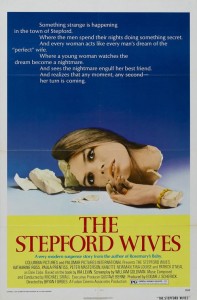
Synopsis:
A lawyer (Peter Masterson) moves with his wife (Katharine Ross) and two kids from New York City to the suburb of Stepford, where Joanna (Ross) immediately begins to suspect that something isn’t quite right with the other wives. Along with her new best friend (Paula Prentiss), she tries to investigate, but finds that few of the women are interested in discussing any concerns deeper than housecleaning.
|
|
Genres, Themes, Actors, and Directors:
- Bryan Forbes Films
- Feminism and Women’s Issues
- Housewives
- Katharine Ross Films
- Living Nightmare
- Patrick O’Neal Films
- Paula Prentiss Films
- Science Fiction
Review:
Critical opinions remain mixed on the success of this first adaptation of Ira Levin’s widely read ’70s novel, with many complaining that director Bryan Forbes turned it into too much of a straight psychological thriller without sufficiently tapping into its satirical underpinnings. I disagree. Forbes — whose earlier successes as a director included Whistle Down the Wind (1961), The L-Shaped Room (1962), and Seance on a Wet Afternoon (1964) — does an impressive job projecting the seemingly idyllic Stepford as a suburb filled with quiet menace, leaving us with no doubt that Ross’s very life is in danger from the moment she reluctantly leaves behind her former life in NYC and suddenly finds herself surrounded by women she can’t relate to on any level (this is a true nightmare!). Her friendship with Prentiss — as well as her interactions with a wealthy, tennis-loving housewife (Tina Louise) — amply highlight the normalcy that’s missing from the rest of the Stepford wives; meanwhile, the screenplay’s slowly oppressive structure — as first Louise, then Prentiss, are “taken over”, and Ross is sneakily roped into having her portrait drawn, then her voice “captured” — is genuinely frightening.
Fans of Levin’s work (which includes the novel Rosemary’s Baby and the thriller-play Deathtrap) will know that he frequently placed wives in positions of vulnerability, positing their husbands as calculating villains whose motives are masked behind a façade of loving attention. That dynamic definitely plays out here, with Masterson doing a fine job as Ross’s husband — a man who seemingly has her best interests at heart, yet is clearly involved in nefarious dealings on some unknown level. Ross is perfectly cast in the lead role, projecting just the right amount of feminist spunk, and Prentiss gives one of her best supporting performances as Bobbie, who fearlessly shows off her body in casually sexy outfits (which are in noted contrast to the prim dresses and hats worn by the Wives). While one can certainly quibble with any number of logistical elements of the story (most having to do with the wives “transforming”), The Stepford Wives remains an engaging and culturally iconic sci-fi thriller, one which all film fanatics should check out.
Redeeming Qualities and Moments:
- Katharine Ross as Joanna
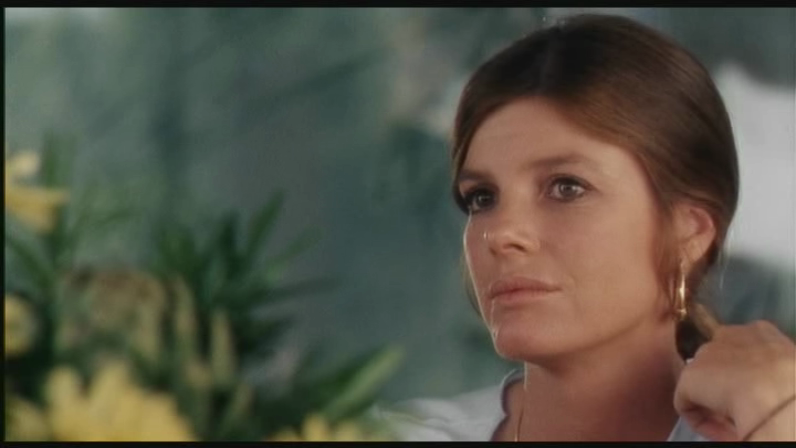
- Paula Prentiss as Bobbie
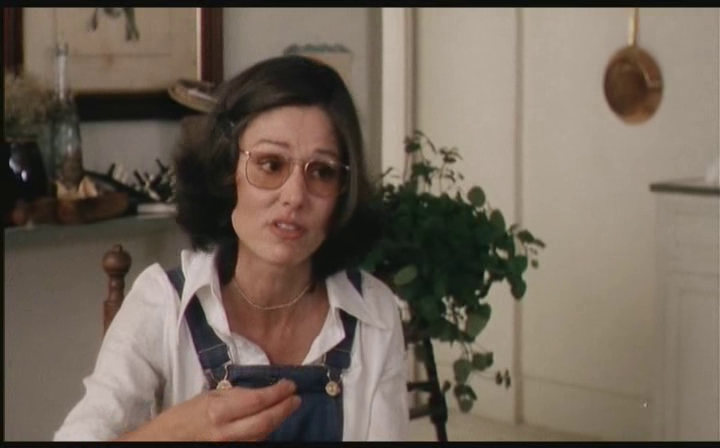
- Peter Masterson as Walter
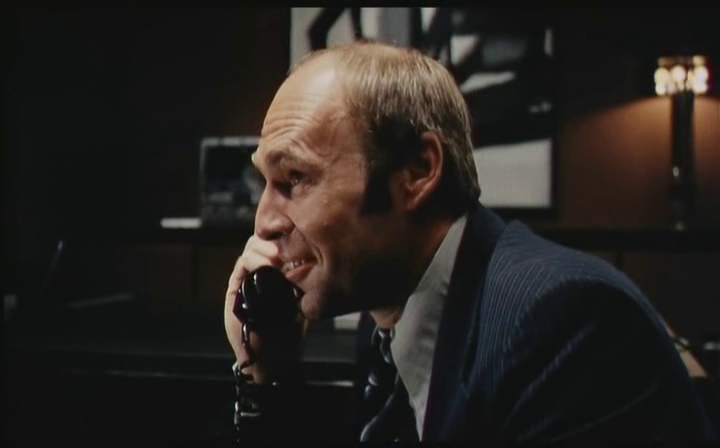
- Tina Louise as Charmaine

- A genuinely creepy premise
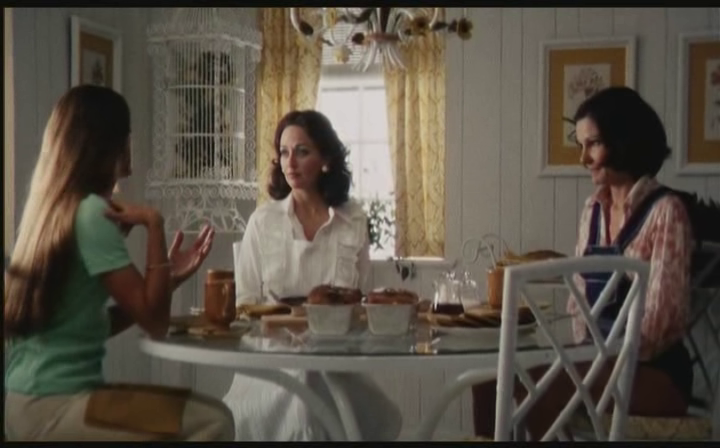
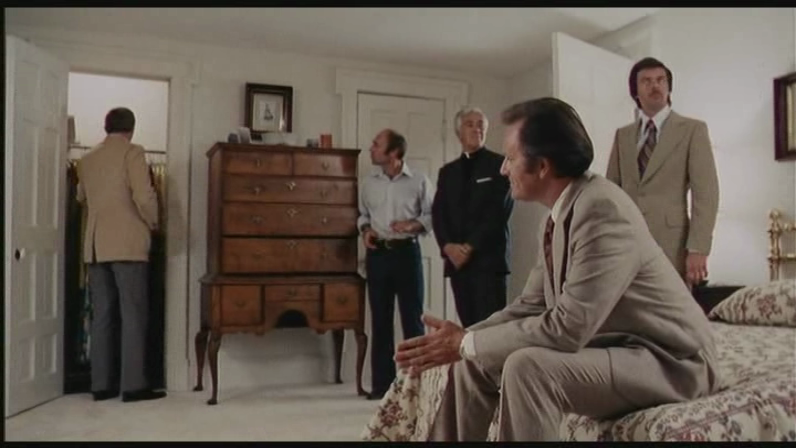
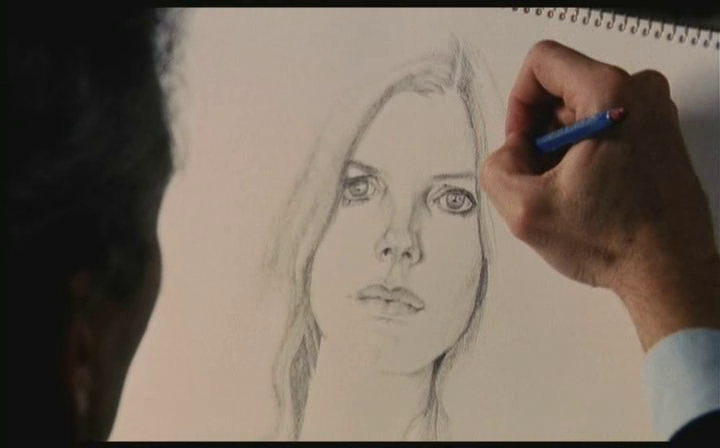
Must See?
Yes, as a culturally iconic psychological thriller.
Categories
Links:
|








One thought on “Stepford Wives, The (1975)”
A tentative once-must. It’s watchable, but I have strong reservations about this one.
~however, “culturally iconic” is correct. It’s just that I don’t think the film is as satisfying as it could have been. It has effective sequences – which probably make it worth a look – but the pacing is often off, and there are a few other problems.
Though I haven’t revisited the film version of ‘The Boys from Brazil’ in too long a time, it’s somewhat interesting to compare the approaches both Forbes and Polanski took to Levin’s work. In his major novels, Levin took hot-button topics (the Catholic church, feminism, Nazism) and distilled them through his own formulaic pattern (i.e., the similarities between ‘TSW’ and ‘Rosemary’s Baby’ are considerable). Bringing Levin’s stories to the screen, though, has proven to be tricky – mainly because far-fetched ideas can easily blend badly with suspension of disbelief. Polanski was clearly up to the challenge, since ‘Rosemary’s Baby’ – even after countless viewings – remains sharp as a tack. But ‘TSW’ comes off as soft on its own terms – and that’s not good.
Watching ‘TSW’ again after a period of many years, it seems to me that William Goldman’s script is problematic. It’s messy when it should be tight. It also has a fair amount of clunky dialogue – some sections simply don’t work. (I don’t recall if the ‘checking of the tap water’ is in the novel but it’s awkward: why would they be checking something that would clearly affect both sexes if their suspicions were correct?). A major flaw does appear in the direction: there’s a missed opportunity in the handling of the transformed wives – it’s inconsistent and not scary enough to be in line with the overall concept. And, since they would be likely to strongly feel the off-ness of their mothers, why is not more done with the children?
Some of the performances help. Though Ross, to me, comes off as serviceable, considering what is asked of her, Prentiss, Masterson and Louise (as noted) turn in good work. Even Patrick O’Neal proves chilling in the penultimate scene. (Having just seen her again in ‘Where the Boys Are’, it’s fun to see Prentiss grow as an actress here. Masterson – father of Mary Stuart – of course, did not do much of note as an actor. His major title as a director is ‘The Trip to Bountiful’.)
From his debut in 1961 (the remarkable ‘Whistle Down the Wind’), Forbes made some marvelous films up to 1967. It’s odd that, from then on, his output took a decidedly different turn.
Note from IMDb:
[Forbes] had a bad relationship with writer William Goldman on “The Stepford Wives”, claiming he found Goldman arrogant and reluctant to rewrite his first-draft screenplay. Goldman in turn claimed that Forbes ruined the film by casting his wife Nanette Newman in a key role and that Forbes did all the rewriting himself at nights during filming.